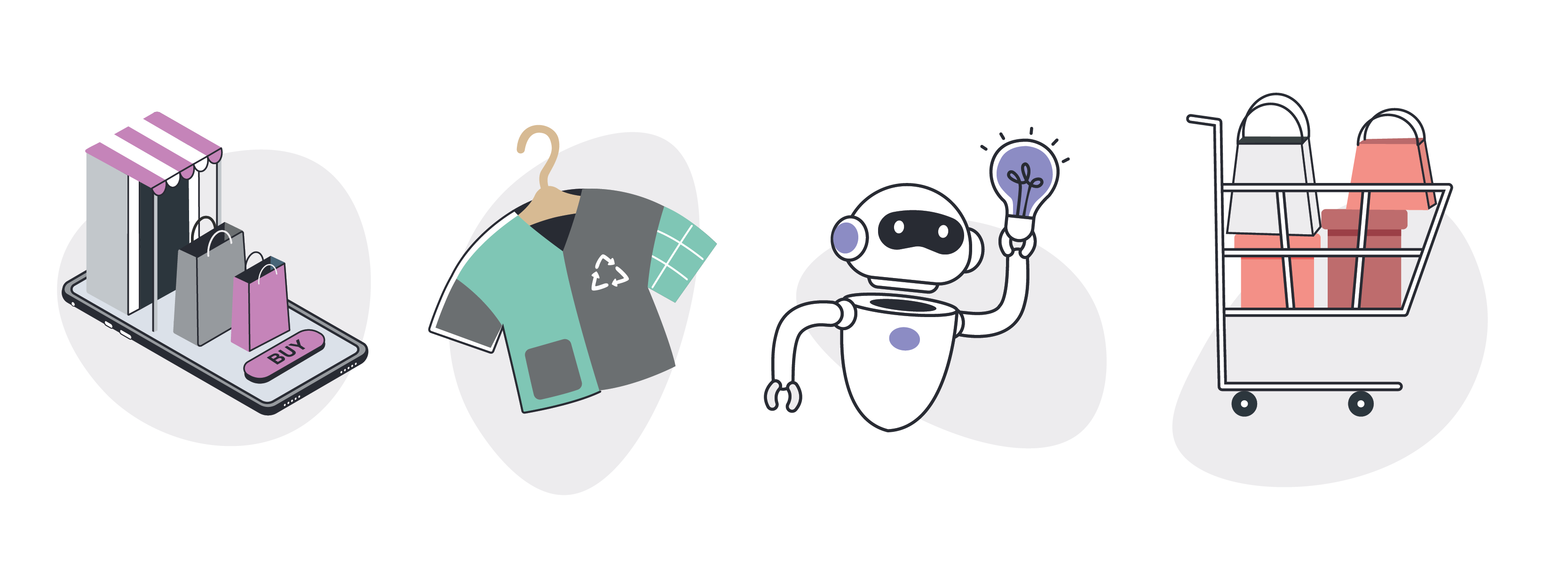As we move into 2025, the retail industry continues to evolve, shaped by advances in technology, a growing emphasis on sustainability, and shifting consumer habits. The pandemic may have accelerated many of these changes, but now is time to fully embrace these new realities and meet consumers’ rising expectations. In this changing landscape, brands need to reconsider how they connect with their customers and find ways to stand out in an increasingly competitive and digital global market.

In 2025, the omnichannel shopping experience will be more important than ever. Consumers expect seamless interactions between the online and physical worlds. Brands will need to deliver smooth, integrated experiences by leveraging technologies like augmented reality, artificial intelligence, and personalisation to meet each customer’s individual needs. According to a McKinsey report, integrating digital and physical channels will be essential for enhancing customer loyalty and maximising sales.
Sustainability will be a key factor. Brands that fail to adopt responsible practices risk losing customers to those that do. This involves not only producing eco-friendly products but also reducing the carbon footprint of their operations. According to Euromonitor International, many consumers in Europe are already willing to pay a premium price for sustainable and ethically responsible products. Companies that lead in this area, such as those using recyclable materials or greener manufacturing processes, will be better positioned to attract an increasingly environmentally conscious audience.
Artificial intelligence will play an even greater role in shopping experiences. This technology will allow brands to predict consumer needs, optimise inventory in real time, and provide even more personalised recommendations. According to Accenture, brands that effectively adopt AI to deliver more relevant shopping experiences will see higher customer retention and improved sales conversion rates. Additionally, automating recommendations and pricing optimisation will enhance both operational efficiency and customer satisfaction.
Although online shopping continues to grow, physical stores remain a vital part of the retail landscape. These will evolve into spaces where customers can engage with the brand in meaningful ways. Integrating technologies like virtual reality and interactive displays will allow customers to experience products in innovative ways. According to PwC retailers that provide engaging and personalised in-store experiences will have an edge over competitors who sell exclusively online.
We are entering a year of transformation and adaptation for the retail sector. Brands that prioritise sustainability, integrate new technologies, and deliver memorable, personalised shopping experiences will be best positioned to succeed. The real challenge will be staying ahead in a rapidly changing market where expectations are higher than ever.
So, how can brands take control of this new landscape?
Adapting to such trends is no easy task. The support, creativity, and expertise of professionals in motivation and engagement can turn this challenge into an opportunity for your company to stand out. At Motivait, we help brands connect with their customers through loyalty programmes that build strong relationships, increase loyalty, and drive profitable business growth.
In a market with rising expectations and more demanding consumers, having an effective loyalty programme is not just an advantage, it’s a necessity. The right tools can transform the shopping experience and turn customers into genuine brand ambassadors.



